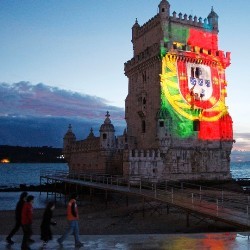Portugal Announces Surprise Plan To Ring-Fence iPoker Market

Last week, Portugal held a regulatory and industry conference in the country’s capital city with one of the most surprise announcements to come out of Lisbon being news that the small southern European country of just 10.5 million people intends to isolate its player pool from that of other nations. Bearing in mind the dire situation ring-fencing players has had on the iPoker markets of its closest neighbors, Spain, France and Italy, the move seems more than a little short-sighted and is likely to result once more in an unattractive, uncompetitive environment for the country’s iPoker operators and online players alike.
Surprise Decision
The news was particularly surprising considering Portuguese lawmakers said that they had carefully been studying the lessons of other online poker markets before deciding their own legal framework. Furthermore, prior to the announcement made by the Director and Head of Online Gambling for the country’s regulator SRIJ, Manuela Bandeira, there had been no indications that ring-fencing the Portuguese iPoker market was even being considered. Consequently, Portugal will now further perpetuate an inefficient European iPoker industry in which sites such as PokerStars have to go through the process of obtaining unnecessarily expensive licenses in each of the main markets of Spain, France and Italy, whilst these partitioned markets also continue to suffer from a lack of liquidity.
Hoping For €25 million in Annual Taxes
After Portuguse President Aníbal António Cavaco Silva signed the country’s iGambling reforms into law in May 2015, they were subsequently implemented on June 28th. Operators looking to launch an online poker site in Portugal will now be expected to obtain a license from the SRIJ [Serviço de Regulação e Inspeção de Jogos], with the government hoping to collect around €25 million ($28m) in annual taxes.
In the meantime, there has been an automatic backlash against the SRIJ’s revelation of a segregated iPoker market, as well as the complicated and punitive tax regime that it had announced this summer of between 15% and 30% for online operators, depending upon their annual income. As a result, a number of operators have already said that they would not be seeking licenses in Portugal, with the list including such major international sites as PokerStars, Full Tilt, William Hill, and Ladbrokes.
Scope For Improvement?
Needless to say, operators and players alike will both be negatively impacted by the troubling development, and as the Remote Gambling Association warned earlier this year:
“Whilst [we] welcome the Portuguese initiative in seeking to regulate the online gambling sector, our members are extremely concerned about the unworkable tax rates that are proposed in the draft law which is presently being considered.”
Hoping to raise a slight glimmer of hope for international operators, however, is the suggestion made by SRIJ that it might consider sharing its poker player pool with other countries some time down the line should a suitable opportunity present itself.
Waning Importance of iPoker
When all’s said and done, Portugal’s decision points to the limited importance iPoker plays these days when a country decides upon the framework of its iGaming industry. In other words, the single market model favors a country’s online casino and sports betting market, where gamblers play against the house and liquidity is not an issue. Online poker, on the other hand, is a peer-to-peer game which requires a critical mass of players in order to produce a viable environment offering an attractive selection of poker cash games and tournaments, as well as featuring a wide variety stakes. In following the examples of the other main European markets, Portugal may have simplified its own regulatory and licensing regime but, like France, Spain and Italy, it is also likely to further decimate online poker’s already waning market.
The worldwide iPoker market has contracted by more than a fifth since 2012, with the biggest negative impact caused by Black-Friday in the US when the country’s Department of Justice banned international poker sites from operating stateside, in the process shutting thousands of Americans out from the global market. Online casino games and sports betting, on the other hand, have continued to surge in popularity. Europe presents a particular important market for the iGaming industry, with around 40% of total world’s revenues of $41.4 billion generated on the continent.










